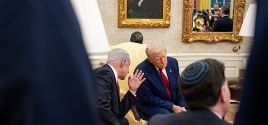Congressman introduces resolution to protect citizens who videotape copsBy Carlos MillerPhotography Is Not A Crime Jul. 17, 2010 |
Popular 
Eloy Adrian Camarillo, 17, Arrested in Shooting Death of Infowars Reporter Jamie White

NYT: Trump Ended War With Houthis After They Shot Down U.S. Drones, Nearly Hit Fighter Jets

Ben Shapiro, Mark Levin and Laura Loomer Warn of Foreign Influence... From Qatar

Trump Advisor to Washington Post: 'In MAGA, We Are Not Bibi Fans'

Trump Cut Off Contact With Netanyahu Over 'Manipulation' Concerns, Israeli Reporter Claims
  "...the resolution will have no binding impact on these departments."A U.S. Congressman has introduced a resolution that would protect citizens who videotape cops in public from getting arrested on state wiretapping charges. "...the resolution will have no binding impact on these departments."A U.S. Congressman has introduced a resolution that would protect citizens who videotape cops in public from getting arrested on state wiretapping charges.Edolphus Towns, a Democrat from New York, introduced the resolution on Thursday, the same day USA Today wrote a scathing editorial denouncing these types of arrests. These types of arrests have become an epidemic throughout the country as more people are carrying some type of video-recording device on them at all times. But the case that has gained the most national attention has been the arrest of Anthony Graber, a National Guardsman who is facing 16 years in prison because he uploaded a video of a Maryland State Trooper pulling a gun on him during a traffic stop. H. Con. Res 298 states the following: Expressing the sense of Congress that the videotaping or photographing of police engaged in potentially abusive activity in a public place should not be prosecuted in State or Federal courts.The Washington Post, NPR Talk of the Nation and Gizmodo also reported on these types of arrests in the weeks leading to the proposed resolution with the Washington Post taking a strong stance against these arrests in an editorial. Today, the Cato Institute, one of the most influential think tanks in the world, also reported on the issue as well as the Tucson Citizen (where I got my start in newspapers back in the ’90s). These arrests tend to take place in states that have two-party consent laws regarding the electronic recording of conversations. These illegal wiretapping laws were created to protect people from having their phone conversations recorded, which is normally a situation where one would have an expectation of privacy. However, police have twisted the law in their favor to arrest people who are videotaping them in public – where nobody has an expectation of privacy.
My name is Carlos Miller and I am a Miami multimedia journalist with more than ten years of professional experience who has been arrested twice since 2007 for photographing police against their wishes. I started Photography is Not a Crime to document developments in my first court case. Today, after beating both arrests, Photography is Not a Crime is renowned nationally for documenting these types of abuses, which occur on an almost daily basis. |



